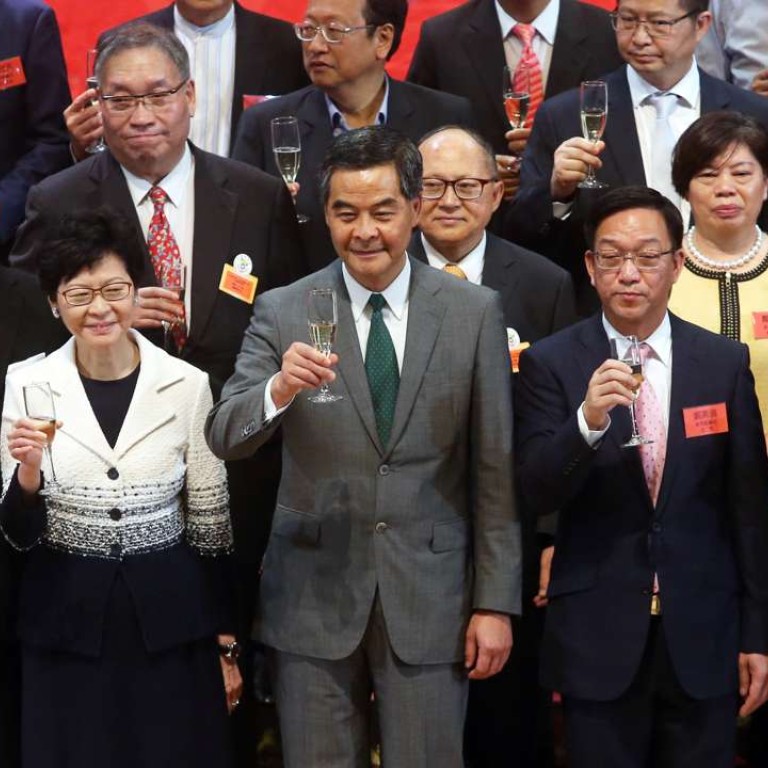
Hong Kong rural leader says opponents exploited ‘public misunderstanding’ in housing development controversy
Heung Yee Kuk chairman Kenneth Lau Ip-keung calls ‘smear’ campaign against them an ‘irresponsible attempt to fuel tension between town residents and villagers’
The head of Hong Kong’s village leaders, who have been at the centre of a housing project controversy, expressed regrets on Friday that some politicians had made use of the “public’s misunderstanding” of rural affairs to smear them.
The Kuk is a 90-year-old council of rural power brokers and village leaders in 27 rural committees in the New Territories. They have been generally pro-government, but many of the rural strongmen are also landlords, and have objected to a number of development plans as the government seeks to solve the city’s housing shortage.
Speaking in the Kuk’s annual reception celebrating the National Day, Lau said: “The Kuk finds it unacceptable for anyone to be threatened for expressing opinion on New Territories affairs.
“But it is also regrettable for some people to make use of people’s misunderstanding to oppose indigenous villagers and the Kuk, as well as to give biased remarks to smear rural leaders, in a bid to win media attention,” he said.
“This was an irresponsible attempt to fuel tension between town residents and villagers, and would hurt Hong Kong.”

Lau reiterated that indigenous villagers’ rights are not “privileges”, but are protected under the Basic Law, the city’s mini-constitution.
“New Territories development depends on the Kuk’s cooperation with the government ... This is the key to stability and prosperity in the New Territories,” Lau said.
Chief Executive Leung Chun-ying did not comment on Lau’s remarks after attending the event.
Lau also refused to confirm if Chu was the target of his accusations.
But asked if he believed the Kuk’s chairman had the activist-turned-lawmaker in mind, Shap Pat Heung rural committee chairman Leung Fuk-yuen said: “You can all see that. Rural leaders like us have been cooperating and supporting the government for a long time. Without such ties, how could there be so many new towns in the New Territories nowadays? ... People should not create division and disharmony in the society.”
In his speech, Chief Executive Leung did not touch on the Wang Chau issue or housing development.
He thanked the Kuk “for offering precious opinions on various issues in the New Territories, and contributing to social development and livelihood improvement”.
“I hope you can continue to work with the government and various sectors, come up with good policies together, and contribute to the society and the country,” he said.
Leung Fuk-yuen also confirmed on Friday that the rural strongmen had requested the number of public housing blocks in Wang Chau be cut from 10 to nine for reasons of feng shui.
“I think the government listened to the rural leaders’ opinion, and I raised the point about feng shui as well,” he said, referring to the graveyard of villagers’ ancestors on a hill nearby.
However, a Housing Department spokesman said details such as the number of blocks for the Wang Chau project were “still being designed”.

